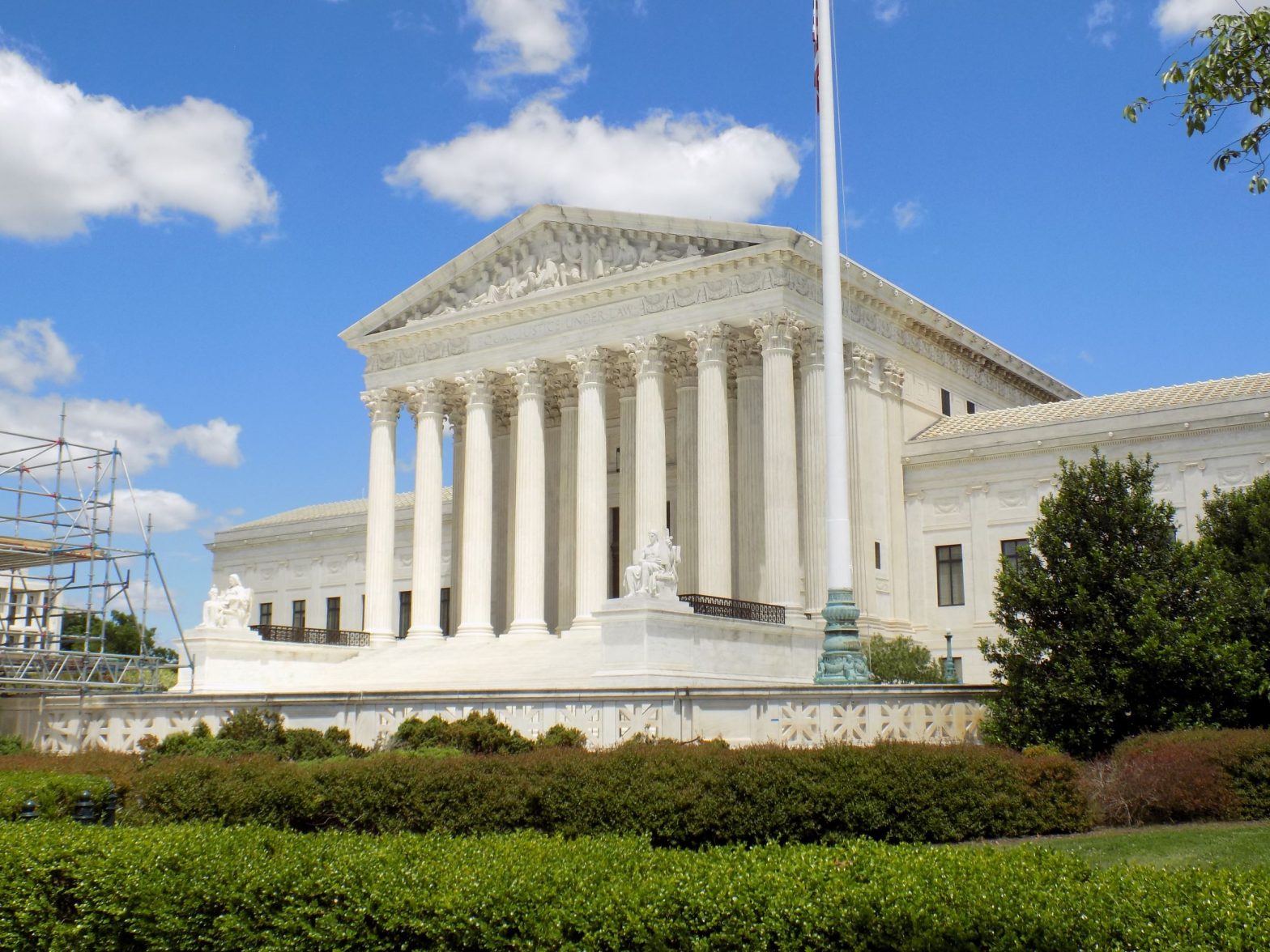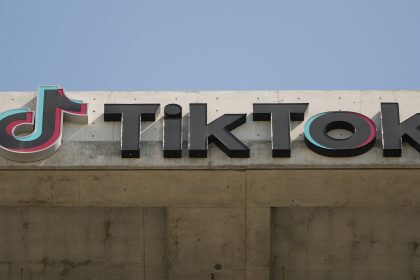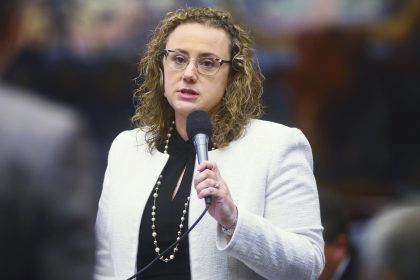Supreme Court Holds Twitter, Google Not Responsible for ISIS Content

WASHINGTON — The Supreme Court on Thursday ruled against the family of a 2015 ISIS attack victim, saying they could not hold Google “directly” or “secondarily” liable for posts the terror group made to the tech giant’s YouTube site before the strike that left 130 people dead in Paris, France.
At the heart of the case was the death of Nohemi Gonzalez, a U.S. citizen who was just 23 when ISIS carried out a series of coordinated terrorist attacks Friday, Nov. 13, 2015, in Paris and its northern suburb, Saint-Denis.
The next day, ISIS claimed responsibility for the carnage, which also left hundreds of other people injured, in a written statement and in a video posted to YouTube.
Gonzalez’s father responded by suing Google — YouTube’s parent company — Twitter and Facebook, claiming they aided and abetted international terrorism by allowing ISIS to use their platforms.
Specifically, as regards YouTube, Gonzalez said ISIS had been able “to recruit members, plan terrorist attacks, issue terrorist threats, instill fear and intimidate civilian populations” simply by posting to the video platform.
The lawsuit went on to assert that because Google uses computer algorithms that suggest content to users based on their viewing history, it effectively assists ISIS in spreading its message.
A U.S. district judge tossed the complaint, granting Google’s motion to dismiss the claim based on Section 230 of the 1996 Communications Decency Act.
Section 230 states that “no provider or user of an interactive computer service shall be treated as the publisher or speaker of any information provided by another information content provider.”
The 9th Circuit later affirmed the ruling, consolidating the case with Twitter v. Taamneh, a case based on tragically similar facts.
As it happened, when the two cases reached the Supreme Court, it was the justices disposition of Twitter that formed the basis of its decision in Gonzalez v. Google.
Twitter v. Taamneh was filed by the family of a Jordanian citizen, Nawras Alassaf, who was killed in an ISIS attack in an Istanbul nightclub in 2017.
The suit itself was based on the Antiterrorism Act, which authorizes victims of an “act of international terrorism” to recover treble damages from “any person who aids and abets, by knowingly providing substantial assistance, or who conspires with the person who committed such an act of international terrorism.”
The Taamneh family argued that Twitter and the other social media companies knew that their platforms played a key role in ISIS’ terrorism efforts and utterly failed to make any effort to keep the group’s content off their platforms.
A federal judge dismissed the case, but the 9th U.S. Circuit Court of Appeals reversed that decision.
On Thursday, a unanimous Supreme Court reversed that reversal.
In doing so, Justice Clarence Thomas, writing for the court, said he and his fellow justices concluded the “[d]efendants’ mere creation of their media platforms is no more culpable than the creation of email, cell phones or the internet generally.”
“And defendants’ recommendation algorithms are merely part of the infrastructure through which all the content on their platforms is filtered. Moreover, the algorithms have been presented as agnostic as to the nature of the content,” Thomas continued.
“At bottom, the allegations here rest less on affirmative misconduct and more on passive nonfeasance. To impose aiding-and-abetting liability for passive nonfeasance, plaintiffs must make a strong showing of assistance and scienter. Plaintiffs fail to do so,” he said.
Returning to the social media companies’ alleged failure to act later in the decision, Thomas said the plaintiffs “identify no duty that would require defendants or other communication-providing services to terminate customers after discovering that the customers were using the service for illicit ends.”
“Even if such a duty existed in this case, it would not transform defendants’ distant inaction into knowing and substantial assistance that could establish aiding and abetting the Reina attack,” he continued.
Further, Thomas said, “the expansive scope of plaintiffs’ claims would necessarily hold defendants liable as having aided and abetted each and every ISIS terrorist act committed anywhere in the world.”
“In this case, the failure to allege that the platforms here do more than transmit information by billions of people — most of whom use the platforms for interactions that once took place via mail, on the phone or in public areas — is insufficient to state a claim that defendants knowingly gave substantial assistance and thereby aided and abetted ISIS’ act,” he said.
Justice Ketanji Brown Jackson wrote a very short concurring opinion in which she stressed that the court’s opinion was “narrow in important respects.”
Jackson noted both Twitter and Gonzalez came to the court “at the motion to dismiss stage, with no factual record.”
As a result, she said, the court’s view of the facts, “including its characterizations of the social-media platforms and algorithms at issue,” rested on the particular allegations in those complaints.
“Other cases presenting different allegations and different records may lead to different conclusions,” Jackson wrote.
The justices’ decision in Twitter enabled them to sidestep, for now, a ruling in the validity of Section 230(c)(1).
“In light of those unchallenged holdings and our disposition of Twitter … it has become clear that plaintiffs’ complaint — independent of Section 230 — states little if any claim for relief,” the per curiam opinion states.
In Gonzalez, the question before the justices was does Section 230(c)(1) immunize the social-media companies — described as “interactive computer services” in the court documents — when they make targeted recommendations of information provided by another information content provider?
Because of Twitter, the justices said, “we need not resolve either the viability of plaintiffs’ claims as a whole or whether plaintiffs should receive further leave to amend.”
“Rather, we think it sufficient to acknowledge that much (if not all) of plaintiffs’ complaint seems to fail under either our decision in Twitter or the 9th Circuit’s unchallenged holdings below,” they said. “We therefore decline to address the application of Section 230 to a complaint that appears to state little, if any, plausible claim for relief.
“Instead, we vacate the judgment below and remand the case for the 9th Circuit to consider plaintiffs’ complaint in light of our decision in Twitter,” the justices said.
Dan can be reached at [email protected] and @DanMcCue
























